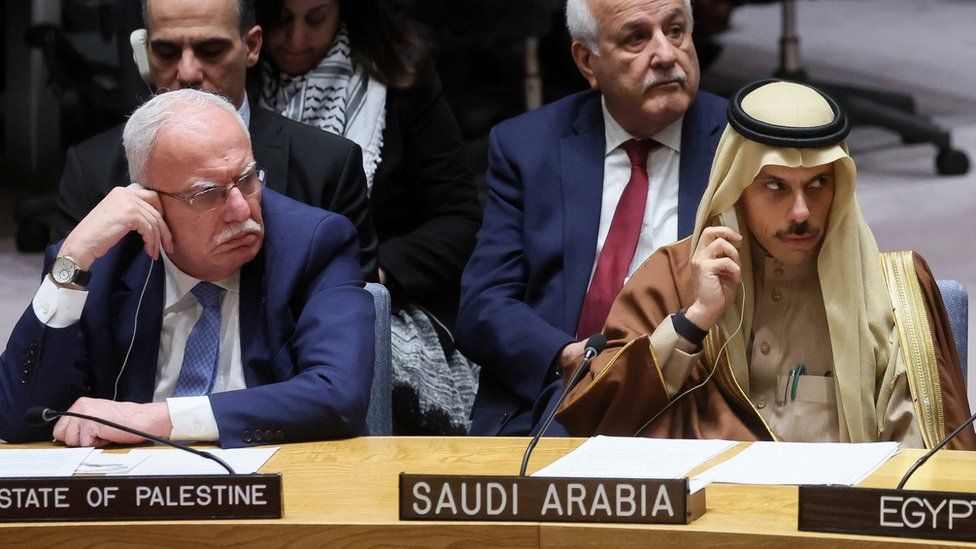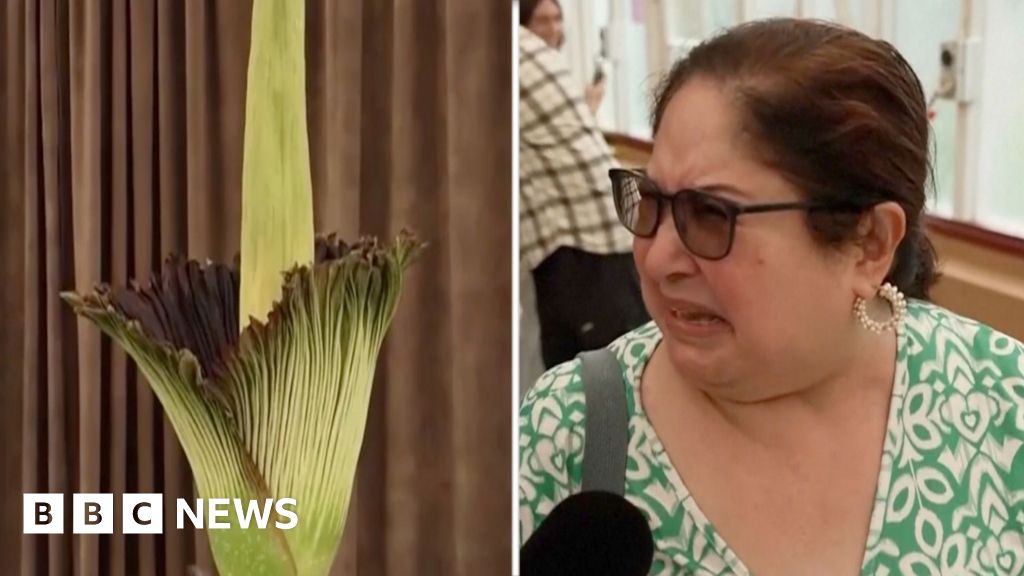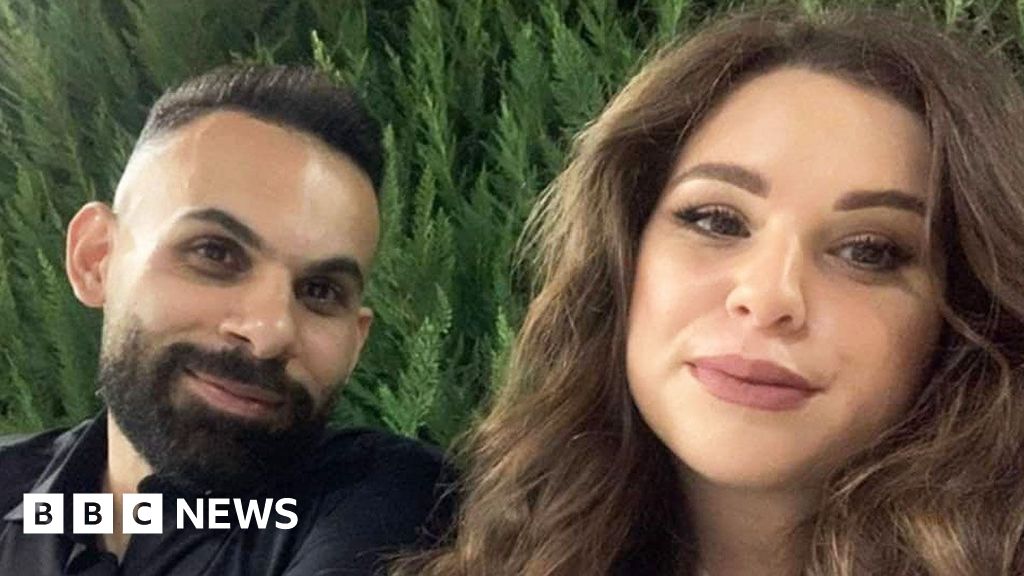ARTICLE AD BOX
 Image source, Reuters
Image source, Reuters
Palestinian leaders have publicly insisted they will reject a Saudi-Israel deal if it does not leave them with a state
Saudi Arabia's ambassador to the UK says it is interested in normalising relations with Israel after the war in Gaza, but that any deal must lead to the creation of a Palestinian state.
Prince Khalid bin Bandar told the BBC a pact was "close" when the the kingdom paused US-brokered talks after Hamas's deadly attacks on Israel on 7 October.
Saudi Arabia still believed in establishing ties with Israel despite the "deplorable" casualty figures in Gaza, he said, but it would not "come at the cost of the Palestinian people".
The ambassador also warned that there was a "failure of humanity" over Gaza, with the international community not doing enough to end the fighting.
He also said he would like to see the UK "moderate it's position" and "treat Israel the same way it treats everyone else". "The blind spot towards Israel is a real problem because it provides a blind spot to peace," he added.
Saudi Arabia is a leader of the Arab and Islamic world. It has never formally recognised Israel since its creation in 1948, and a deal normalising ties would represent a major breakthrough for the Jewish state.
In late September, Saudi Arabia's de facto ruler had declared in a US television interview that "every day we get closer" to an agreement.
While Crown Prince Mohammed bin Salman said the Palestinian issue was "very important" and that any agreement would have to "ease the life of the Palestinians", he did not declare that it would be dependent on advances towards the creation of an independent Palestinian state.
The public position of Palestinian leaders is that they will reject outright a deal if it does not leave them with a state, but earlier that month officials had said they were privately demanding a cash boost and more control of land in the occupied West Bank in return for engaging with the US-backed Saudi-Israel process.
Saudi officials reportedly asked the US to pause the three-way discussions a few days after the 7 October attacks, in which about 1,300 people were killed and 240 others taken hostage by hundreds of Hamas gunmen who infiltrated southern Israeli communities from Gaza.
Gaza's Hamas-run health ministry says more than 23,200 people have been killed in the territory during the military campaign that Israel subsequently launched with the aim of destroying Hamas.
After meeting Crown Prince Mohammed on Monday, US Secretary of State Antony Blinken told reporters he had brought up the subject of normalisation.
"There's a clear interest here in pursuing that," he said. "But it will require that the conflict end in Gaza, and it will also clearly require that there be a practical pathway to a Palestinian state."
In an interview with the BBC's Today programme on Tuesday, the Saudi ambassador in London confirmed that "absolutely there is interest" among his country's leaders for an agreement.
"[A deal] was close, there is no question. For us, the final end point definitely included nothing less than an independent state of Palestine. So, while we still - going forward after 7 October - believe in normalisation, it does not come at the cost of the Palestinian people," Prince Khalid said.
He added: "We were close to normalisation, therefore close to a Palestinian state. One doesn't come without the other. The sequencing, how it is managed, that is what was being discussed."
Image source, Reuters
Image caption,US Secretary of State Antony Blinken said there remained a "clear interest" in normalisation in Saudi Arabia
Asked if Saudi Arabia saw Hamas - which is proscribed as a terrorist organisation by Israel, the US, UK and other Western countries - as part of that future Palestinian state, Prince Khalid said it "requires a lot of thought".
"There is always room for change if you have optimism and hope. But when there is a conflict the first thing you have to recognise is that both sides have lost," he added.
"The problem that we have today with the current government in Israel is there is an extreme, absolutist perspective which does not work to achieve compromise and therefore you are never going to end the conflict."
He did not elaborate, but two far-right Israeli ministers were denounced by the US after they recently called for Palestinians to be resettled outside Gaza.
Prince Khalid also warned that there was a risk of radicalisation as a result of the war, which has not only left many thousands of civilians dead in Gaza but also caused widespread devastation and a deep humanitarian crisis.
"The unprecedented level of the violence that has been carried out by both sides - but in particular by what is meant to be a responsible state in Israel - over the past three months, I don't think I have seen anything like it in my life," he said. "The numbers are deplorable, absolutely deplorable."
"That is going to create a lack of hope amongst not just the Palestinian people, but disaffected people [across the world]. All see a failure of humanity in what is happening, because nobody has done anything to stop it. Efforts are being made, but it is not enough."

 1 year ago
33
1 year ago
33








 English (US) ·
English (US) ·